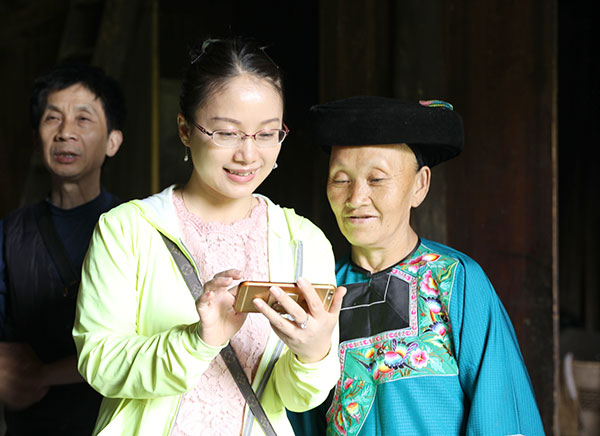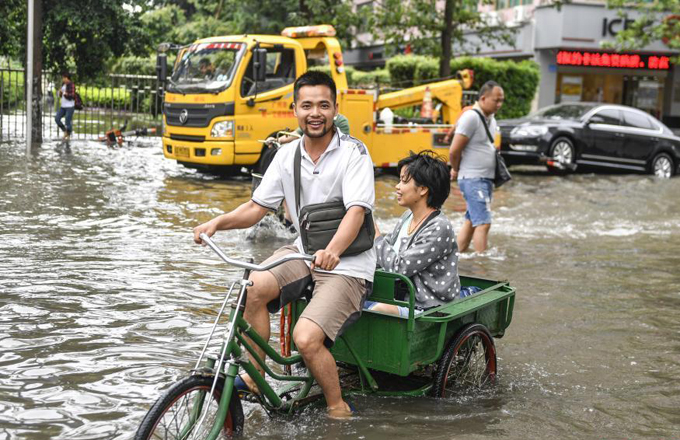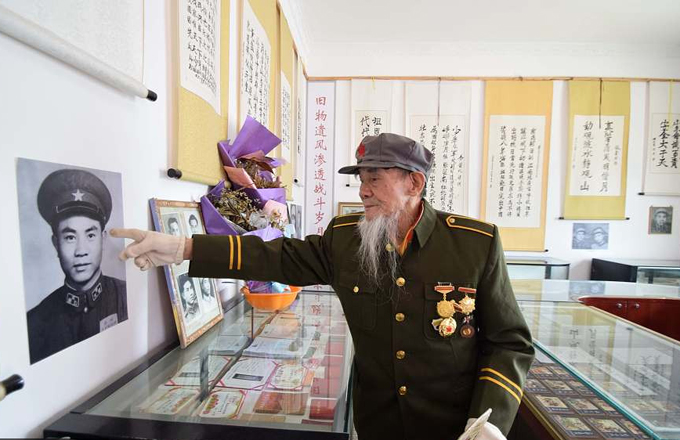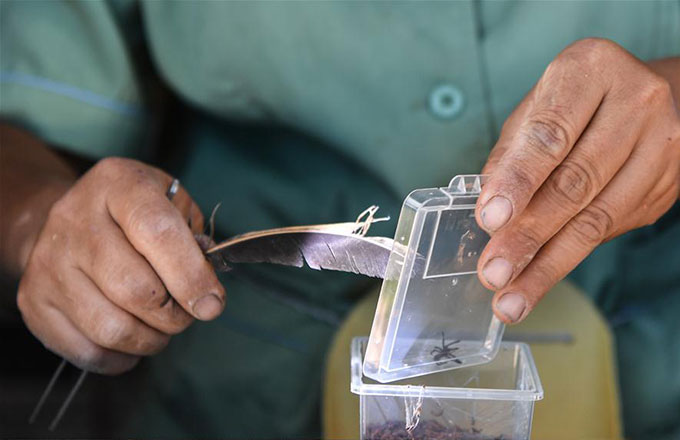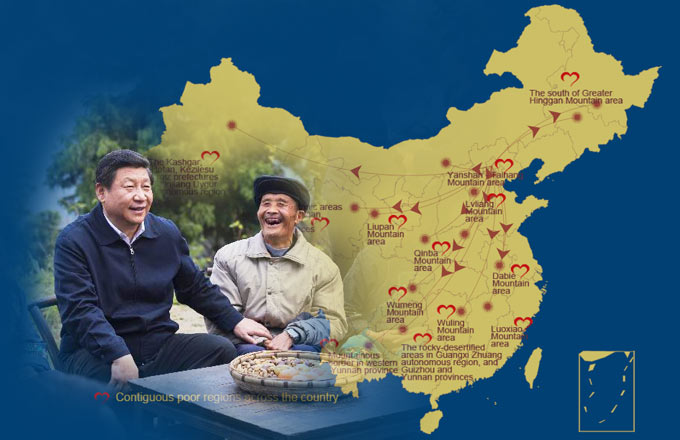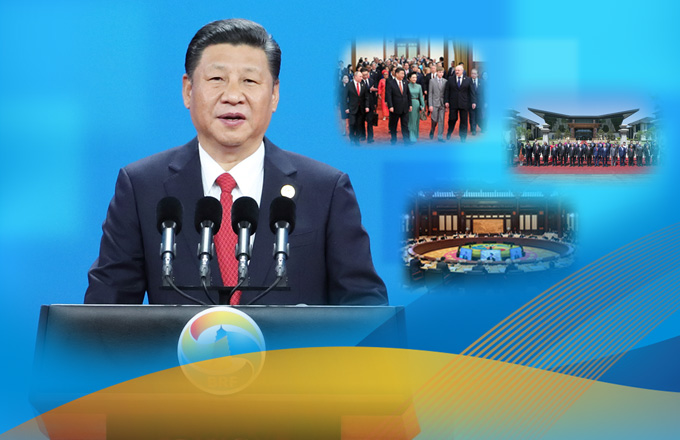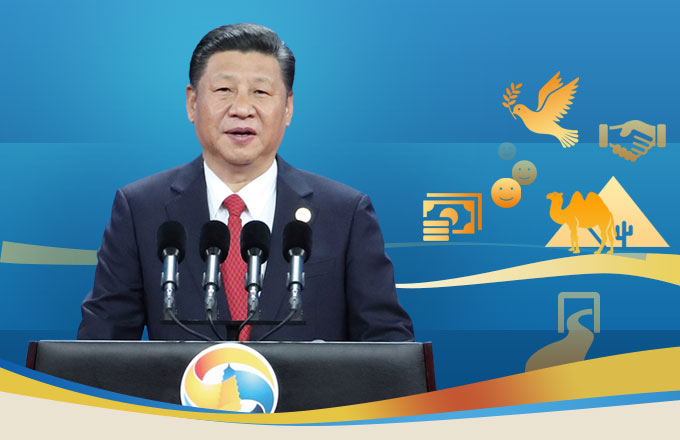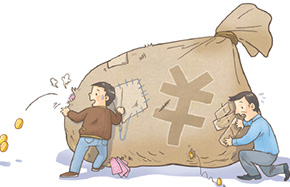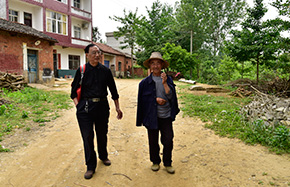Ethnic villagers' fortunes rise as they cooperate in kiwi cultivation
Editor's note: In the run-up to the 19th Communist Party of China National Congress, China Daily sent six reporters to villages nationwide to live for a month and take a look at how people are working under China's poverty eradication plan.
When President Xi Jinping paid a visit to Shibadong village in 2013, he passed by the home of Shi Basan and stopped to shake her hand. The only problem was, she didn't recognize him.
"How should I address you?" the villager, 64 at the time, asked China's head of state, drawing surprise from those around her. However, at the time, a fair number of seniors in this mountain village in Hunan province may have struggled to identify the president.
Shibadong is a remote enclave in the Xiangxi Tujia and Miao autonomous prefecture. It has a population of nearly 1,000 and about 560 hectares of arable land. Homes made of wood and bamboo stand atop the hills to save the land below for farming, and narrow stone paths connect the neighborhood along the slopes.
At the time of Xi's visit, the village was poor and isolated.
"Few strangers visited here," Shi said, explaining that the only electrical equipment in her smoke-blackened home was a dim light bulb. She had to watch TV at her neighbor's house, and spoke only the local Miao dialect.
Shi and her husband had to walk 2 kilometers on a winding mountain path to fetch drinking water from the valley below. After their two daughters married, the elderly couple farmed a small rice field and kept pigs.
Many seniors in Shibadong saw real a car for the first time when a new road was built in 2001. Before that, villagers had to walk for more than an hour to the nearest road to catch a bus to the surrounding towns. They had to carry everything in and out on their backs.
"We had to sell our pigs before they grew too big; otherwise, it would be too hard for two men to carry them out of the village," Shi said.
Because of the lack of transportation options, she seldom left home except for fairs in the nearby township. The farthest place she had ever been before 2013 was Jishou, a city 40 km away, to see her elder daughter, who was in a hospital there.
Xi's vision
During Xi's visit in 2013, he met with the villagers and asked about their condition. The president stressed the importance of precision in eradicating poverty, saying that poverty alleviation should be based on real situations, must be targeted on the right people and industries and must use the right tools.
Afterward, the Huayuan county government sent work teams to villages where incomes were below the poverty line to guide poverty alleviation efforts.
"We try to help villagers explore things that can be copied and promoted in other places," said Wu Shiwen, head of the work team in Shibadong. "It's our mission to motivate villagers and give them a passion to fight against poverty."
The team has worked with the village committee to assist in developing industries, promoting agricultural products and upgrading infrastructure.
In the past few years, Shi said she has witnessed many changes in the village.
The earthen floor in her old home is now smooth concrete. And instead of fetching water, she can turn on a tap. Both her kitchen and bathroom have been improved, and she has an LED TV on her wall.
Renovation projects were carried out in every home under the guidance of the work team, using government funds. Villagers were also organized to pave the old dirt paths.




